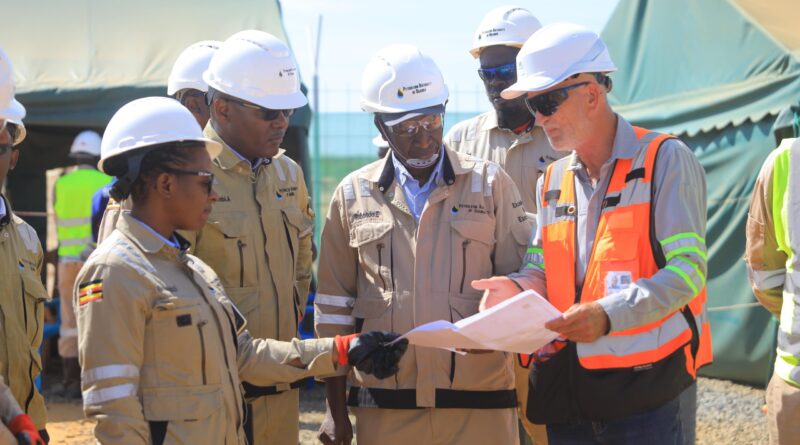UNOC Promotes Uganda’s Oil and Gas Potential at Africa Energy Week
Amid the vibrant energy discussions of the 2023 African Energy Week (AEW), all eyes turned to Uganda as the session organized by the Uganda National Oil Company (UNOC) captured the essence of investment and partnership prospects in Uganda’s energy sector. The session gathered prominent figures across public and private sectors with discussions focused on the evolving energy landscape while underscoring Uganda’s emergence as a dynamic energy hub and its growing appeal to global energy investors.
Uganda’s Oil Prospects
With substantial reserves, Uganda boasts approximately 1.4 billion barrels of recoverable crude oil and significant gas resources, making it one of Africa’s fastest-growing energy markets. The country has successfully positioned itself as an attractive destination for global energy companies and investors. The spotlight session highlighted the vast opportunities in Uganda’s energy sector, drawing the attention of key stakeholders.
“Uganda offers tremendous potential for private sector players in the energy field, encompassing favourable regulations, policies, and an array of opportunities,” stated Aggrey Ashaba, General Secretary of the Uganda Chamber of Mines and Petroleum.
Uganda is committed to producing its first oil in 2025, thanks to the Final Investment Decision for the $10 billion Lake Albert Development project. This venture, which includes the Kingfisher and Tilenga oilfields and the 1,443km-long East African Crude Oil Pipeline (EACOP), reflects a partnership between TotalEnergies and the China National Offshore Oil Corporation, signifying the nation’s evolution into an oil and gas epicentre.
“We are currently building an investment portfolio exceeding $10 billion, directed toward developing 1.4 to 1.7 billion recoverable barrels of oil while enhancing our downstream sector,” stated Proscovia Nabbanja, CEO of UNOC Limited.

Uganda’s Renewable Energy Potential
Uganda is not just about hydrocarbons; it boasts significant renewable energy resources, with over 80% of its electricity generated from hydropower. Furthermore, the country has ambitious plans to double its generation capacity by 2040, primarily driven by renewable energy sources.
“Today, our energy mix is largely hydropower-based, with only 7% attributed to hydrocarbons. Our total installed capacity surpasses 2,000 MW, and as we strive for industrialization, we aim to increase our generation capacity to 52,000 MW by 2040,” explained Eng. Irene Batebe, Permanent Secretary for Uganda’s Ministry of Energy and Mineral Development.
A Call for International Investors
On the mid- and downstream fronts, Uganda is extending an open invitation to foreign investors to participate in various infrastructure projects within and across the East African region. With substantial opportunities for players involved in refining, transportation, service provision, and associated industries, the Ugandan energy sector is experiencing rapid growth.
“As a local entity, we have a project resource portfolio exceeding $15 million. We can source local content, foster local development, and engage in partnerships with local entities to boost Uganda’s supporting industries,” remarked Job Kahigwa, Chairman and CEO of ROHI Investment Ltd.
The African Energy Renaissance
The insights gleaned during this AEW spotlight session underline Uganda’s energy evolution and the vast opportunities awaiting international investors. Uganda’s ascent as an energy hub in East Africa has positioned it as a prime investment destination in the sector. By fostering private sector participation, adhering to international standards, and promoting sustainable growth, Uganda is set to play a pivotal role in Africa’s energy renaissance.
African Energy Week 2023, held in Cape Town from October 16 to 20, revolves around the theme, ‘The African Energy Renaissance: Prioritizing Energy Poverty, People, the Planet, Industrialization, and Free Markets.’ This annual event, organized by the African Energy Chamber, serves as a platform for uniting African energy stakeholders and global investors to discuss the future of energy on the continent.
With Uganda’s remarkable energy journey, abundant resources, and commitment to private sector participation, it is no wonder that the spotlight is shining brightly on this East African nation. As the country advances to becoming a prominent player in the global energy landscape, the world watches with anticipation for the opportunities it offers and the bright future it signifies.

